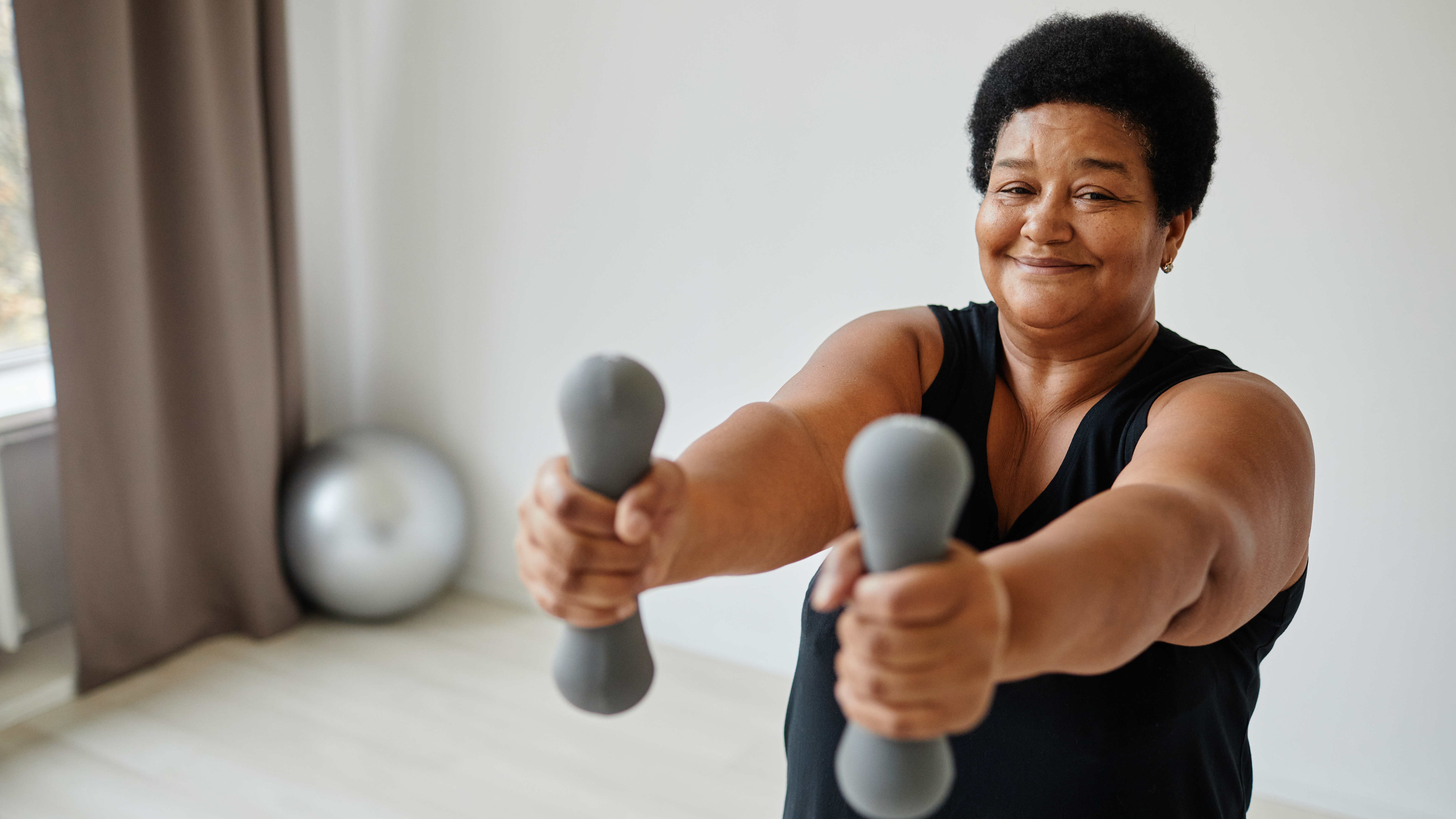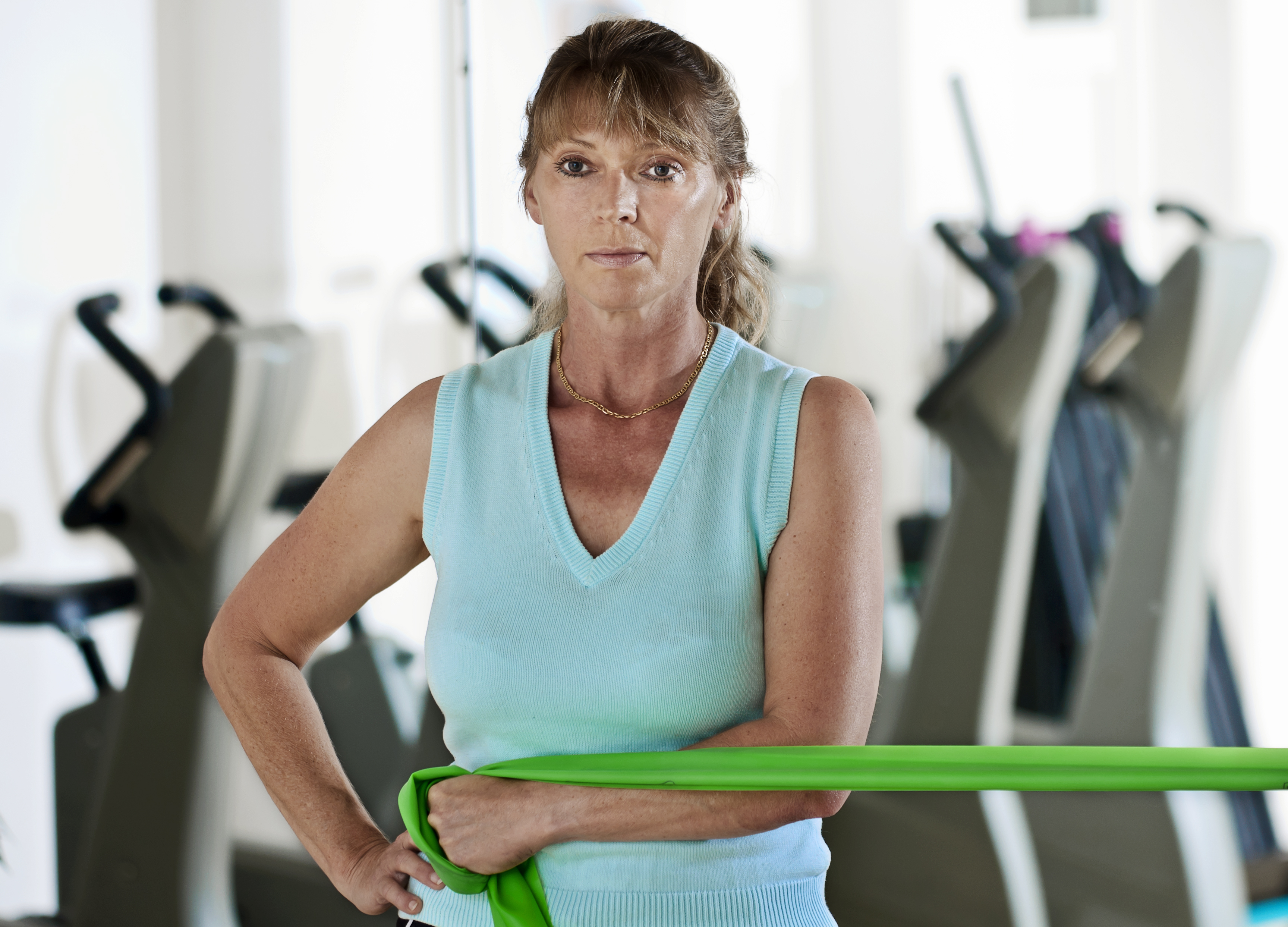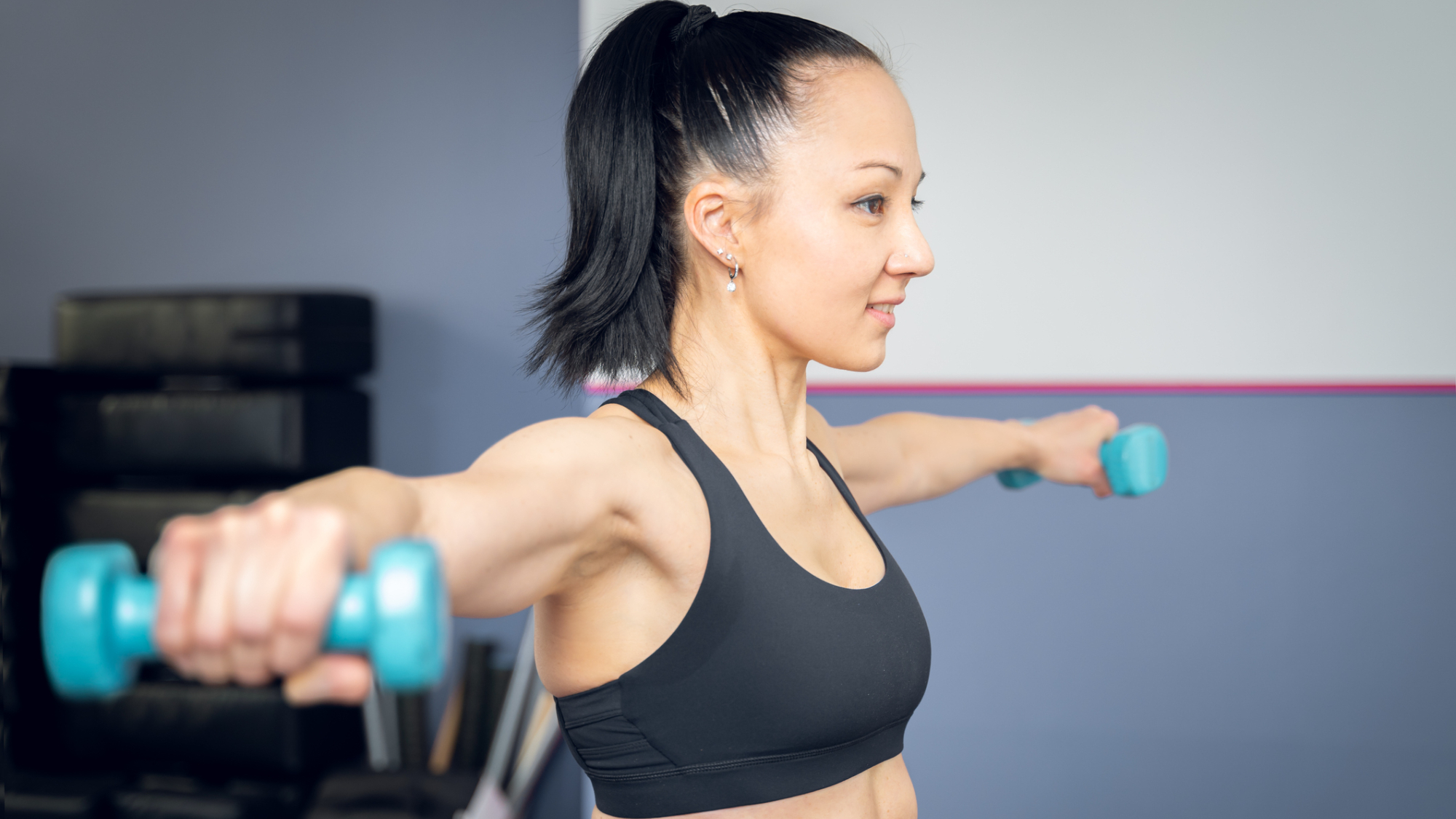A physical therapist says this is the one muscle you should be strengthening to improve your posture and reduce upper-back pain
Are you struggling to improve your posture? Weak rotator cuff muscles might be why

Discomfort around the upper back is very common and it can have an impact on your posture, causing you to slouch over your desk or hold tension in your shoulders.
There are many exercises to improve posture but we asked physical therapist at Complete Pilates Alysha Eibl for her number one tip. She said there's one group of muscles in particular that many people forget to strengthen, which can lead to bad posture.
"A lot of people neglect their upper back, which is really important for good shoulder function," she says.
"There is a set of muscles in our shoulders called the rotator cuff and they help keep our shoulders stable," Eibl explains.
"Lots of people do exercises like the chest press, shoulder press or biceps curl—what we would call the 'showy' muscles because when they're strong they change the way we look," Eibl says. She explains that it's a good idea to train these muscles, but it's also worth thinking about ‘invisible’ muscles like the rotator cuff to help improve our posture.
Adding rotator cuff exercises into your upper-body workouts will not only help improve your posture, but improve the way your shoulder moves and feels too. "Although these muscles are smaller, they're always switched on and humming in the background, so it's good to get them in a stable anatomical position so that we can move around with speed or at heavier weight," Eibl says.
Below, Eibl has shared three exercises that you can do to strengthen the rotator cuff. You can either do these on their own regularly, or as a warm-up to your usual workouts. "Warming up with rotator cuff exercises before we do upper-body exercises is a really great way to have your shoulder as biomechanically sound as possible," Eibl says.
Start your week with achievable workout ideas, health tips and wellbeing advice in your inbox.
You’ll notice Eibl recommends doing a high number of repetitions (reps). "These muscles are smaller muscles and they're also endurance-based, so as a general rule we're doing a lighter load but more reps," she explains.
Three exercises to strengthen the rotator cuff
Resistance band arm extension
Sets: 1 Reps: 15-20
- In a seated or standing position, tuck your arms by your side and have your elbows at 90° with forearms parallel to each other.
- With your palms up, hold a resistance band in your hands. Keeping your upper arms in contact with your sides, move your hands out to the sides. Keep your chest proud, collar bones open and your shoulder blades drawn together throughout.
- Pause for two seconds when you pull the band out and return the band with control for two seconds. To increase the difficulty, use a heavier resistance band or hold less of the band in between your hands.
External shoulder rotation

Sets: 1 Reps: 15-20 on each side
- Tie a resistance band around a door handle or a pole.
- Take the band in your right hand and step across and away to create tension.
- Tuck your right arm by your side with your elbow 90° then draw your hand towards your body as if you’re trying to touch your belly. Slowly move it back to the neutral position. Switch sides and repeat.
Lateral raise

Sets: 1 Reps: 15-20
- Hold a 1-2.5kg weight in each hand by your sides
- Sitting or standing, keep the chest open, look straight ahead and keep the shoulder blades drawn together.
- Lift the hands until they're shoulder-height at 90° then lower them back down with control.
Trainer tip
"You shouldn't need to use your legs to move and get your arms up," Eibl says. "It's different to a strength-based lateral raise that would engage the outside muscles of your shoulder."
Alice Porter is a freelance journalist covering lifestyle topics including health, fitness and wellness. She is particularly interested in women's health, strength training and fitness trends and writes for publications including Stylist Magazine, Refinery29, The Independent and Glamour Magazine. Like many other people, Alice's personal interest in combining HIIT training with strength work quickly turned into a CrossFit obsession and she trains at a box in south London. When she's not throwing weights around or attempting handstand push-ups, you can probably find her on long walks in nature, buried in a book or hopping on a flight to just about anywhere it will take her.
